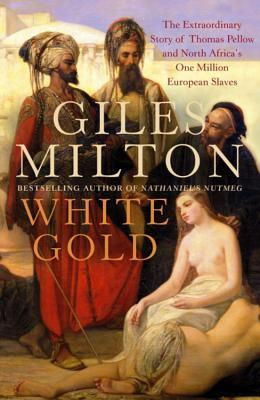
A riveting multi-sourced account of a majorly overlooked era of European history, the reasons for which you may make of as you will. Also, the author provides a fab bibliography of further reading of accounts of the Barbary (or White) Slave Trade as told by those who were captured and lived, or the opinions of their contemporaries, and a fantastic introduction to the extraordinary life of Thomas Pellow.
It was Pellow's sharp and smart nature that led him to follow his uncle on his ship, which made slaves of the whole crew, but it was also the same strength of character that allowed him to defy all odds (his uncle died and most of the crew) and become something of a valued slave to Moulay Ismail, ruler of Morocco, in Meknes and beyond. Even his forced apostasy from Christianity to Islam didn't dampen his hopes of returning to England one day, even though apostasy was highly frowned upon back then (but not, might I add, to the death). He was ordered to marry, and his wife bore him a daughter. Still he never gave up hope of escape. It was practically a miracle that his final journey across mountains swarming with bandits, who almost killed him, was a success, and he made it to the British military camp on Gibraltar. It's sad to note on Pellow's return to the little town of Penryn in Cornwall, where neither he nor his parents recognised each other (which is legit enough), he felt rather isolated and alien, with Morocco feeling like home.
To be honest, I'm surprised it's so short, considering the amount of information that seems to be left over from the era, but then again, Pellow's own account is still available, as are others', including a descendent of his family, Captain Edward Pellew, who gave Algiers a whupping (around 100 years after Thomas Pellow was captured by the Moors) causing significant enough damage to the slave city that it led not long after to the complete annihilation of the White Slave Trade by the French.
Milton's research took him to the very heart of the trade, the market in Algiers, which is still extant, though with (I presume) zero human cargo today. He unveils information about part of Europe's past that is shamefully brushed under the carpet, primarily, I would take a gander, because of the modern European obsession with guilt. Interestingly enough, the 300 odd years of the White Slave Trade overlapped with the Black Slave Trade, and so it isn't particularly surprising in the era of apology that millions of Europeans died at the hands of Muslims and their black slaves, and we hardly know the damnedest about it. Slavery is slavery, and it really doesn't matter where it's coming from, only that it's ended, which Europe did for both trades, consequently.
Full title: White Gold: The Extraordinary Story of Thomas Pellow and North Africa's One Million European Slaves

Comments